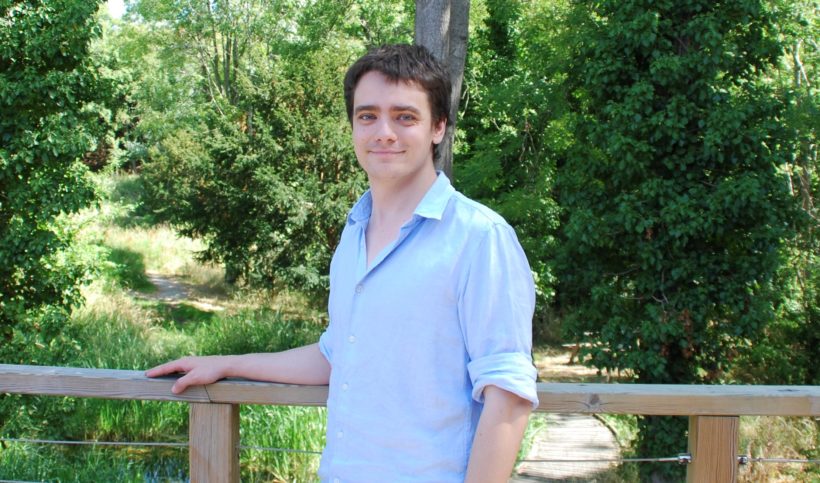“Science Oxford changed my life”
Wednesday 31st August 2022

We met Steven Williams at the Wood Centre for Innovation to find out how Science Oxford changed his life.
Inspired by bees
Steven was home educated from an early age by his mum. In 2008, aged 16 and without any A levels, he started an Open University degree in Humanities with English Literature. In the second year of his studies, he took an unusual turn and applied for a Nuffield Science Bursary run by Science Oxford, part of The Oxford Trust. As a result, he spent six weeks working at the Oxford University Museum of Natural History on a project strangely called “Re-curating Mr Smith’s Bees”.
“The collection was made up of incredibly rare examples of British bees, some of them now extinct,” said Steven, “but it gave me the opportunity to learn curatorial skills and gave me an insight into a possible career. In short, it made me change from humanities to sciences in six short weeks.”
Young Scientist of the Year
Encouraged by his mentor at the Oxford University Museum of Natural History, Darren Mann, Steven entered the project on Mr Smith’s Bees into a regional science competition and won Young Scientist of the Year, 2010, swiftly followed by a Best Crest Award and a ticket to the national finals of the Big Bang Science Fair finals in London. He realised science was for him.
Since then, he has spent 11 years at the Oxford University Museum of Natural History working mainly as a Collections’ Assistant on a range of projects, the most interesting of which was “Hope for the Future”. This is an ambitious three-year project funded by the National Heritage Fund, it was named after Frederick William Hope, an important entomologist and a founding collector of the Museum in the 1840s. The aim was to protect and share its amazing British insect collection, which represents all insect groups from butterflies to beetles along with bees, flies and true bugs. It offers an extraordinary window into the natural world and is considered vital for understanding the extent of species loss and ecology damage.
The path to a PhD
But, from the age of 12, Steven has been mad about spiders. While working at the Natural History Museum, he had another twist of fate when a colleague undertaking a doctorate encouraged him to follow through on his interest of arachnids. Without A levels, a degree in the wrong subject and no masters under his belt, he managed to persuade Oxford Brookes University to accept him to do a part-time PhD on “A phylogeny of the genus Gasteracantha Sundevall, 1833 (Araneae, Araneidae) with an examination of sexually dimorphic characters in the subfamily Gasteracanthinae” – for those that don’t know, these are spiders with spines, mostly found in the tropics.
Inspiring young people
After 8 years of working and studying part-time, Steven is just completing his PhD and now says “I want to help inspire young people to make brave choices and follow their passions – much as I have done. My interest in science all stems from the Nuffield Bursary facilitated by Science Oxford. I have dared to do something different, but my career choices have been helped by having wonderful mentors and organisations that have given me the courage to take the next, often unconventional, step.”
What next? He hopes to do a post-doc and continue his research into spiders. Steven has also promised to come back to the Centre for Science Oxford’s STEM Insight Week in early 2023 to talk to a cohort of secondary school students. We wish him the very best of luck.


